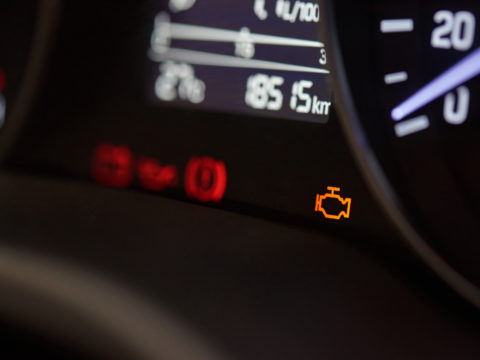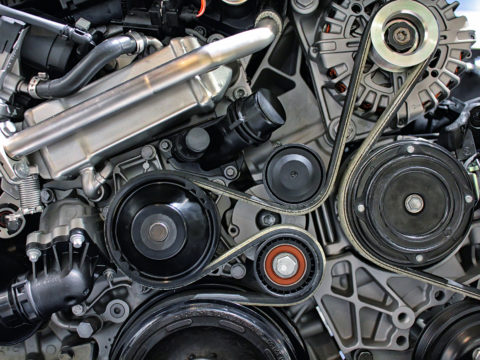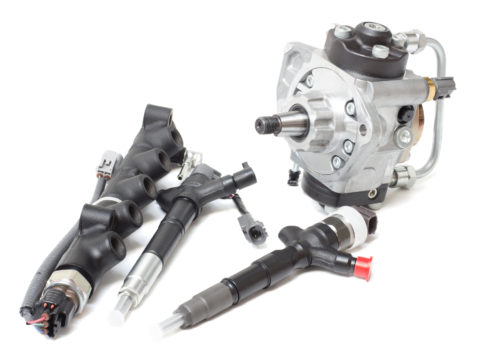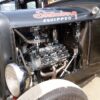If you’ve ever had your turbocharged engine misfire or stall, you’ve probably experienced a boost leak.
A boost leak is an air leak in your turbocharger system that can cause symptoms such as loss of power, poor acceleration, increased fuel consumption, or smoke from the engine.
Keep reading to learn more about symptoms, causes, and repairs of boost leaks.
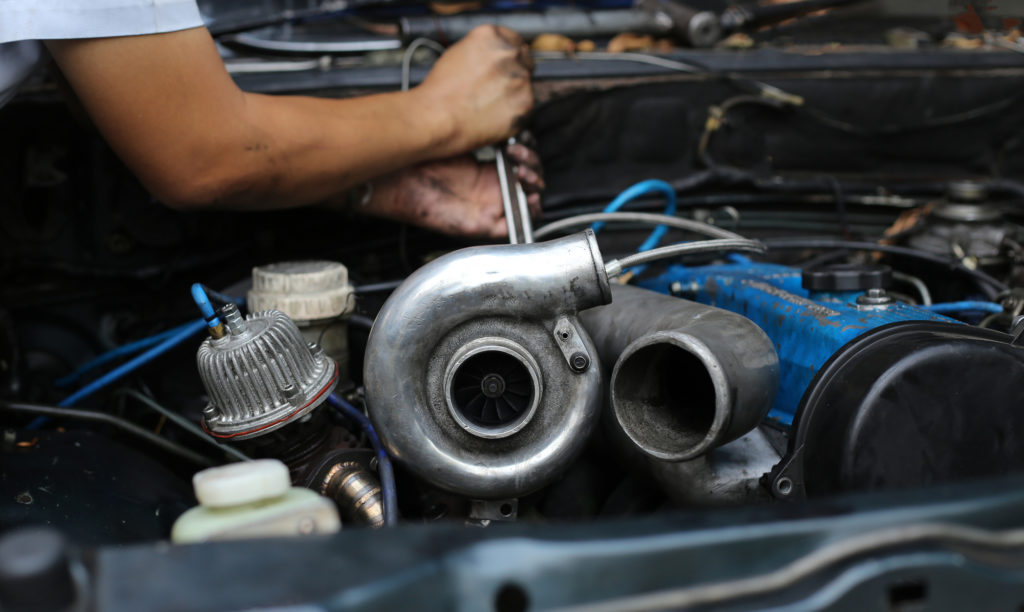
Contents
What Is a Boost Leak?
A boost leak is a term that refers to an air leak in your turbocharger system. It usually occurs before the compressed air hits the engine’s cylinders, but it can happen at any point in the system.
What Does a Boost Leak Sound Like?
A boost leak means energy escaping your system through a tiny hole. Like a teapot, this will produce a high-pitched sound similar to a whistle.
Some boost leaks can also sound like a hiss or whine, depending upon their location in the tubing.
Symptoms of a Boost Leak
In addition to the high-pitched noise that is usually a tell-tale indicator, a boost leak can manifest itself if a variety of ways, including:
- Check Engine Light
- Loss of Power
- Poor Acceleration
- Increased Fuel Consumption
- Smoke From the Engine
Check Engine Light
If your boost leak is new or small enough that you may not pick up on some more obvious symptoms, your car may be the first to notice.
If your check engine light comes on and you begin to sense any of the other symptoms below, a boost leak test should be in your near future. Waiting too long can cause more extensive damage.
Loss of Power
A turbocharger works by compressing air already produced by the engine. It then takes that compressed air and shoots it back into the engine, creating more power.
If a leak in the system allows air to escape, the turbo will not work to its full potential.
Drivers will notice that the engine does not perform as efficiently as it once did and must work harder to achieve the same results.
Poor Acceleration
One of the first times you might notice a loss of power and potential boost leak is during acceleration.
An engine must work its hardest when accelerating, so a dropoff in power then would be readily apparent even for a relatively non-observant operator.
Increased Fuel Consumption
Because your engine is working harder than it would with a properly functioning turbo system, it will require more fuel than normal to achieve the same output level.
Your miles per gallon will drastically decrease as the boost leak becomes more severe, and you may notice you frequent the gas station more often.
Smoke From the Engine
If a boost leak goes unnoticed for too long, one of the most glaring symptoms is smoke from the engine block. If an engine works too hard for too long, it will overheat and must somehow release excess energy.
While you could still drive temporarily with some of the other symptoms of a boost leak, taking your chances on a smoking engine is not the best idea.
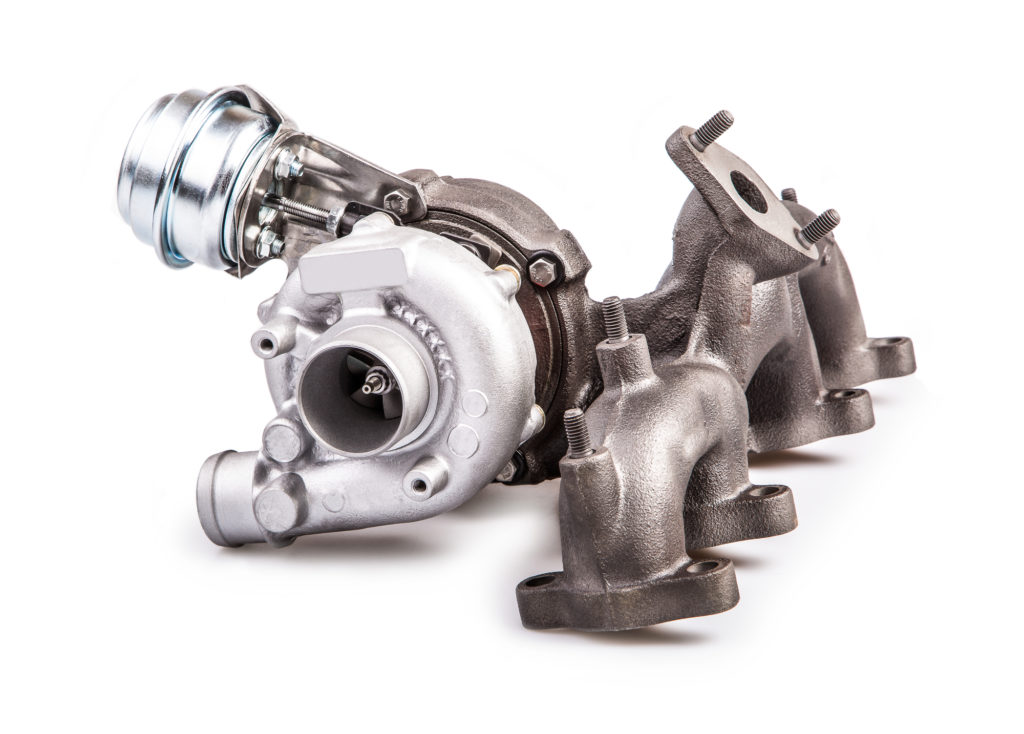
What Causes a Boost Leak?
A boost leak can occur anywhere in the turbo system. Air escapes most commonly in the following four places:
- Pipes
- Clamps
- Couplers
- Intercooler
Pipes
One of the most common places for a leak is in the piping that makes up the connection.
These pipes, usually made of aluminum, handle more than their fair share of work in the turbo, transporting hot air from the compressor back to the engine.
After repeated and prolonged use, those tubes can weaken and become subject to cracks or fissures.
Clamps
While more substantial than the clamps you can pick up at the hardware store for jobs around the house, the clamps that hold your turbo system are still subject to wear and tear.
Over time, these clamps can loosen their hold, allowing air to escape and robbing your engine of power.
Couplers
If some of your pipes are held together by couplers, these could also be a likely suspect for a boost leak’s cause. An improperly installed coupler could allow air to escape the system, and even a small leak could lead to serious power loss.
Intercooler
Before the compressed air from your turbocharger re-enters your engine, it must first pass through an intercooler.
An intercooler takes the hot air produced by your compressor and cools it and provides it with more oxygen, which is ideal for conditions inside your engine.
If an intercooler fails, the vehicle will experience many of the symptoms discussed above including a smoking engine, decreased power, and poor fuel consumption.
How to Check Intercooler for Leaks
Below are three of the most common ways to check your system for leaks:
- Visual Inspection
- Listen for the Hiss
- Soap and Water
Visual Inspection
A large crack in your intercooler should be noticeable by just looking at it. A leak that is detectable by the naked eye would likely rob your system of quite a bit of power.
Listen for the Hiss
Remove the intake valve to your compressor and securely fasten a piece of PVC or tubing where the intake should be.
Pump compressed air into the system and listen for the leak. A hiss or high-pitched whine should accompany the opening.
Soap and Water
If you can locate the source of the leak by eye or ear, cover the system with soapy water and pump in compressed air as described above. Small bubbles caused by escaping air should reveal the source of the leak.
Can Boost Leak Damage Engine?
Drivers who ignore boost leaks do so at their peril. A boost leak means that a certain part of the system is already weakened.
Continuing to run compressed hot air through that weakened section will only cause it to deteriorate faster.
This could eventually lead to a decreased life span of the turbo and the engine, which must work harder to compensate for the leak.
Can You Drive With a Boost Leak?
Yes, but that doesn’t mean it is safe or wise. As mentioned above, a boost leak causes every part of your internal combustion engine to work harder than it should, and doing so for a prolonged period will lead to problems down the line.
Is a Boost Leak Expensive to Fix?
Boost leak repairs vary in price. Certain sections of the system are more expensive to replace than others. Additionally, a more damaged system will need more parts.
Replacing the tubes will likely run you around $500 with parts and labor, while replacing the entire intercooler will probably cost around double that amount, depending on parts and labor pricing.
What Happens if You Don’t Fix a Boost Leak?
While a boost leak might cost a few hundred dollars to get fixed, the cost of leaving a boost leak unattended can run drivers much more than that.
As the source of the original leak grows, you could replace even more parts of the system.
If left unfixed for too long, the entire turbocharger could need replacing. A prolonged leak could also lead to extensive damage to the engine itself, making replacing the intercooler seem like a bargain.

